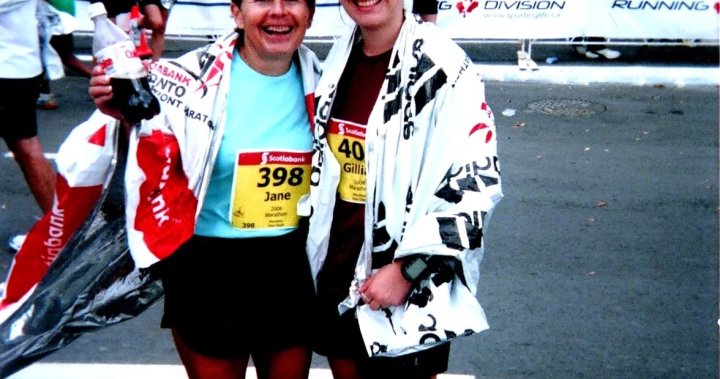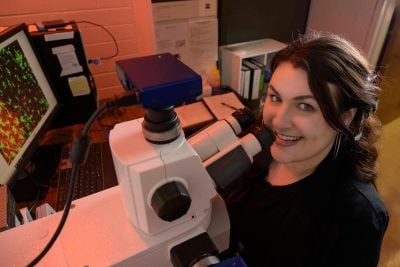Calgarians will gather at an inaugural Parkinson’s Disease picnic that hopes to bring awareness to Canada’s fastest growing neurological disease.

On Saturday, researchers, family, friends and some of those diagnosed with Parkinson’s Disease are uniting at Prince’s Island Park to bring attention to this difficult diagnosis while exploring the impact on local families and shining a light on current research.
Calgary mother and daughter duo Gillian Savage-Knight and Jane Boyd are among those attending the event through a shared passion and legacy of the deep bond between them.
Around the time Boyd turned 70, her family started noticing a concerning trend with the family matriarch who had a love for running.
“She’s been a runner her whole life, she was still doing basically ten k (kilometers) a day,” her daughter Savage-Knight said. “And all the sudden, we kind of noticed she was shuffling and stooping. And so that was very new for me.”
Four years ago, Boyd was diagnosed with Parkinson’s Disease, a progressive neurological disease that can cause tremors, stiffness and slowing of movement.
It was hard on the family and has been hard to witness the changes making simple tasks hard.
“My mom to me is superwoman right? She’s super fit, super active… she retired as a high school math teacher and she was still tutoring high-level calculus,” she said of her mother.
A lack of dopamine is one of the telltale signs that University of Calgary researchers have witnessed in the used cells donated by Parkinsons patients.
At the Movement Disorder Clinic, neurologists are exploring promising new therapies such as ultrasound to modify brain activity.
Davide Martino of the Calgary Parkinson Research Initiative said it’s become easier to control symptoms, but they are seeking more.
“But what we really want is something that targets the very core of the condition. The very core mechanism that causes the death of brain cells in Parkinson’s disease,” Martino said.
A loss of fine motor skills is a common symptom as the disease takes hold. What’s been even more difficult for Savage-Knight is her mother’s cognitive decline.
“It just occurred to me about a year ago that my mom just stopped texting,” she said. “She’s normally the person I call with any good news or anything going on in life.”
With memory loss now adding to physical limitations, running together is no longer an option. Boyd, now 74, has opted out of clinical trials.
“I think there is hope. Maybe not for my mom but for others that are out there,” Savage-Knight said.
“As we learn more things as we get more research out there then I think there is going to be some sort of breakthrough out there in the near future.”
© 2024 Global News, a division of Corus Entertainment Inc.



